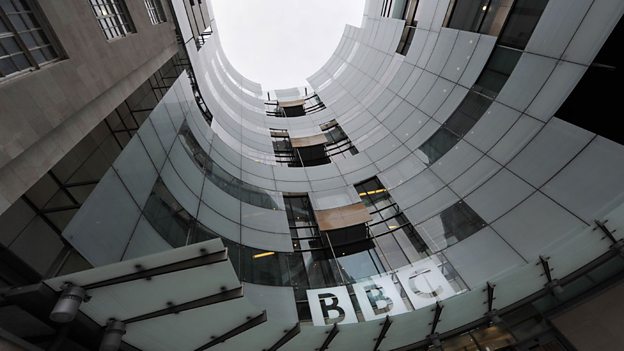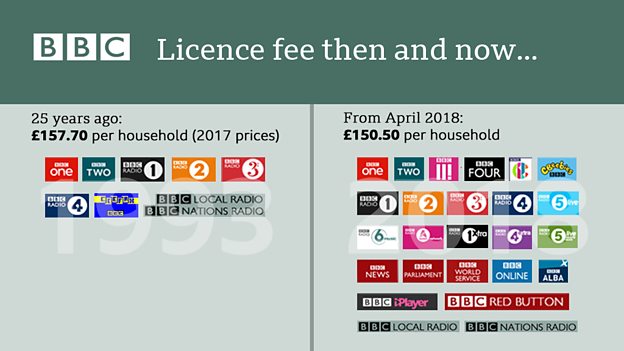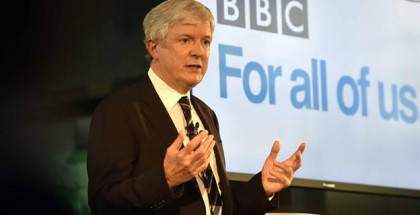TV Licence rises to £159 this April
David Farnor | On 09, Feb 2021
The government has confirmed that from 1st April 2021 the cost of the annual television licence fee will increase from £157.50 to £159.
The government, not the BBC, is responsible for setting the level of the licence fee and announced in 2016 it would rise in line with inflation for five years from 1st April 2017.
Anyone watching or recording TV programmes live on TV, or watching or downloading BBC programmes on iPlayer (whether live or on-demand), needs to be covered by a licence. This applies whether they are using a TV set, computer, or any other equipment.
The increase is equivalent to less than 3p a week with the overall cost of a licence equating to just 43p a day for which the BBC provides nine national TV channels plus regional programming, 10 national radio stations, 40 local radio stations plus dedicated Nations radio services, one of the UK’s most popular websites, the radio app BBC Sounds, and BBC iPlayer.
Each week 91 per cent of UK adults come to the BBC, with an average of 5 million people using its services every single minute of the day and night, across TV, radio, and online.
In 2020, BBC iPlayer set new records with over 5 billion requests for content and BBC Sounds had over 1.1 billion UK plays of radio, music and podcasts. In 2021 CBBC and CBeebies broke records with 40.8m BBC iPlayer requests in the week 11 to 17 January as children turned to the BBC for education and entertainment during lockdown. BBC News has also been relied upon by the nation throughout the past year with BBC News Online seeing 81.2 million UK unique browsers visiting BBC News sites in one week alone in March 2020.
Following the Government confirming the licence fee increase, people will receive a reminder or an updated payment plan reflecting the new amount when their licence is next due for renewal.
Those buying or renewing a licence after 1st April 2021 will pay the new fee. Those already buying a licence on an instalment scheme which started before 1st April 2021, such as monthly direct debit or weekly cash payments, will continue to make payments totalling £157.50 until their licence comes up for renewal. Anyone buying a new licence before 1st April 2021 will also pay the current rate.
For more on how the TV Licence works and whether you need one, see our handy guide here.
TV Licence rises to £157.50 this April
4th February 2020
The government has confirmed that from 1st April 2020 the cost of the annual television licence fee will increase from £154.50 to £157.50.
The government, not the BBC, is responsible for setting the level of the licence fee and announced in 2016 it would rise in line with inflation for five years from 1st April 2017.
Anyone watching or recording TV programmes live on TV, or watching or downloading BBC programmes on iPlayer (whether live or on-demand), needs to be covered by a licence. This applies whether they are using a TV set, computer, or any other equipment.
The new licence fee amount equates to £3.02 a week or £13.13 a month, for which the BBC provides nine national TV channels plus regional programming, 10 national radio stations, 40 local radio stations plus dedicated Nations radio services, one of the UK’s most popular websites, the radio app BBC Sounds, and BBC iPlayer. In the last financial year 95 per cent of the BBC’s controllable spend went on content for audiences and delivery, with 5 per cent spent on running the organisation. Hit programmes last year included 18.5 million tuning in for the Christmas return of Gavin & Stacey, while an audience of 28.1 million watched the BBC’s coverage of the 2019 Women’s World Cup. There were a record 4.4 billion programme requests on BBC iPlayer, and the BBC’s election coverage culminated in 23 million people watching the results programme, plus 39 million visits to the news website the following day, and 100 million for BBC online overall that week. Other popular shows included Line of Duty, Fleabag, Luther, Strictly Come Dancing, Dr Who, EastEnders, Seven Worlds One Planet, Match of the Day and coverage of Wimbledon.
Licence fee payers will receive a reminder or a payment plan reflecting the new amount when their licence is next due for renewal. Those buying or renewing a licence after 1st April 2020 will pay the new fee. Those already buying a licence on an instalment scheme which started before 1st April 2020, such as monthly direct debit or weekly cash payments, will continue to make payments totalling £154.50 until their licence comes up for renewal.
The cost of an annual black and white licence, meanwhile, will rise from £52.00 to £53.00. Those who are blind or severely sight impaired are still entitled to a 50 per cent concession on the cost of a licence. From 1st April 2020 this amount will be £78.75.
There is no change to the Accommodation for Residential Care concession, which is available to people living in certain types of residential care accommodation, which may include care homes or sheltered housing. There is also no impact on the free over-75s licence as it currently stands. From 1st June 2020 anyone aged 75 or over receiving Pension Credit will be eligible to apply for a free TV Licence. Pension Credit can be in the name of the licence holder, or in their partner’s name if they are a couple and living at the same address. If Pension Credit is not being received, then the TV Licence will need to be paid for.
For more on how the TV Licence works and whether you need one, see our handy guide here.
TV Licence fee to rise to £154.50 this April
2nd January 2019
The TV Licence fee will rise to £154.50 this April, the government has confirmed.
In 2016, after six years where the Licence fee was frozen, the government announced that the sum would begin to rise again for five consecutive years, in line with inflation, starting in 2017. And so, after last year’s increase from £147 to £150.0, the fee will once again increase slightly on 1st April 2019, climbing to £154.40.
Anyone watching or recording TV programmes live on TV, or watching or downloading BBC programmes on iPlayer (whether live or on-demand), needs to be covered by a licence. This applies whether they are using a TV set, computer, or any other equipment. Licence fee payers will receive a reminder or a payment plan reflecting the new amount when their licence is next due for renewal. Those buying or renewing a licence after 1st April 2019 will pay the new fee. Those already buying a licence on an instalment scheme which started before 1 April 2019, such as monthly direct debit or weekly cash payments, will continue to make payments totalling £150.50 until their licence comes up for renewal.
The annual figure equates to £2.97 a week or £12.87 a month, for which the BBC provides nine national TV channels plus regional programming; 10 national radio stations, 40 local radio stations plus dedicated Nations radio services; one of the UK’s most popular websites; the radio app BBC Sounds; and, perhaps most importantly of all, BBC iPlayer. In the last financial year, 94 per cent of the BBC’s controllable spend went on content for audiences and delivery, with just 6 per cent spent on running the organisation. The result was a slew of popular programmes, including Strictly Come Dancing, Killing Eve, Bodyguard, Dr Who, Peter Kay’s Car Share, David Attenborough’s Dynasties, EastEnders, Match of the Day, and coverage of Wimbledon and the World Cup – both, for the first time, in 4K on BBC iPlayer.
TV Licence to rise from £147.00 to £150.50
23rd February 2018
The annual TV Licence fee is going up by three pounds this April, the BBC has confirmed.
From 1st April 2018, the cost of the annual charge will increase to £150.50, marking the second year of fee increases in a row. Last year, the fee increased for the first time since 2010, as part of a previously announced five-year rise, in line with inflation.
The Government is responsible for setting the level of the licence fee, and the fee applies to anyone watching or recording TV programmes as they are shown on TV, or watching or downloading BBC programmes on iPlayer – whether they are using a TV set, computer, or any other equipment.
The new fee amount equates to just £2.89 a week or £12.54 a month. For that, you get the BBC’s nine national TV channels plus regional programming, 10 national radio stations, 40 local radio stations and BBC iPlayer, as well as live access to ITV, Channel 4 and Channel 5 (those only catching up with the latter three on-demand, i.e. not recorded from their live broadcasts, do not need to pay a licence fee). Last year, 95 per cent of the BBC’s controllable spend went on content for audiences and delivery, with just 5 per cent spent on running the organisation. Programmes in the last year have included Strictly, Blue Planet II, Three Girls, Doctor Foster, Doctor Who, Taboo, McMafia, EastEnders, Match of the Day, Wimbledon and the Winter Olympics.
Licence fee payers will receive a payment plan or a reminder reflecting the new amount when their licence is next due for renewal. Those buying or renewing a licence after 1st April will pay the new fee. Those already paying for a licence on a monthly direct debit or weekly cash payments will continue to make payments totalling £147 until their licence comes up for renewal. Those buying a new licence before 1st April will pay the current rate.





















